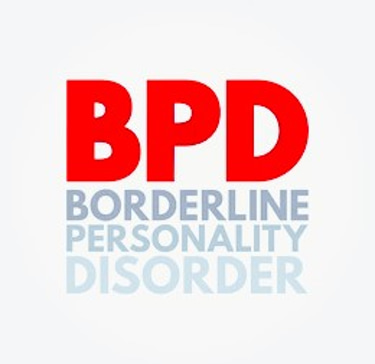BPD and Object Constancy
G. Pacana
2/11/20242 min read


"Those with BPD cannot conceive that individual or situational object constancy can endure. He has no laurels on which to rest. Every day he must begin anew trying desperately to prove to himself that the world can be trusted. Just because the sun has risen in the East for thousands of years does not mean it will happen today. He must see it for himself each and every day." ― Jerold J. Kreisman, I Hate You--Don't Leave Me
One important aspect related to borderline personality disorder, which doesn’t get enough attention, is the psychological concept known as object constancy. In psychological terms, object constancy refers to our ability to maintain stable and consistent perceptions and relationships with the people in our lives, regardless of our current emotional state.
And regardless of their presence or absence, Object constancy allows us to trust people's consistency, even when we are not in contact with them or we have conflicts.
Object constancy typically develops during infancy and early childhood. During the attachment process between an infant and mother, the infant begins to recognize, through repeated experiences of separation and reunion, that caregivers continue to exist even when they are not physically present.
This understanding is the basis of object constancy and is crucial for the development of a sense of security and trust in relationships. Object constancy is critical for forming healthy relationships and navigating the complexities of the social world.
Unfortunately, not everyone develops object constancy. For individuals with BPD, this ability is often compromised, leading to significant challenges in relationships and overall functioning. For example, individuals with BPD may idealize their partner at the beginning of a relationship, seeing them as perfect and infallible. However, as the relationship progresses and a conflict arises, they may quickly shift to devaluing their partner and no longer feel love for them.
As strange as it may sound, individuals who have not developed the psychological skill of object constancy can genuinely love someone one day and, after a serious altercation, cease to love that person. Someone with BPD who struggles with object constancy would find it difficult to maintain positive feelings about an individual if the person disappointed or hurt them, even if it were someone they previously cared about.
Object constancy is a significant challenge for individuals with BPD, impacting their relationships and overall functioning. However, with the right support and treatment, it is possible to overcome it. Through therapy, skill development, and a greater understanding of one's emotions, individuals with BPD can develop a more consistent and stable perception of themselves and others.
Cognitive-behavioral therapy (CBT) is an effective tool for addressing object constancy challenges. CBT helps individuals identify and challenge negative thought patterns and beliefs that contribute to unstable perceptions of themselves and others. By replacing distorted thinking with more balanced and realistic thoughts, individuals can begin to develop a more consistent and stable sense of self and others.
Copyright 2025 Psycnet, All Rights Reserved
